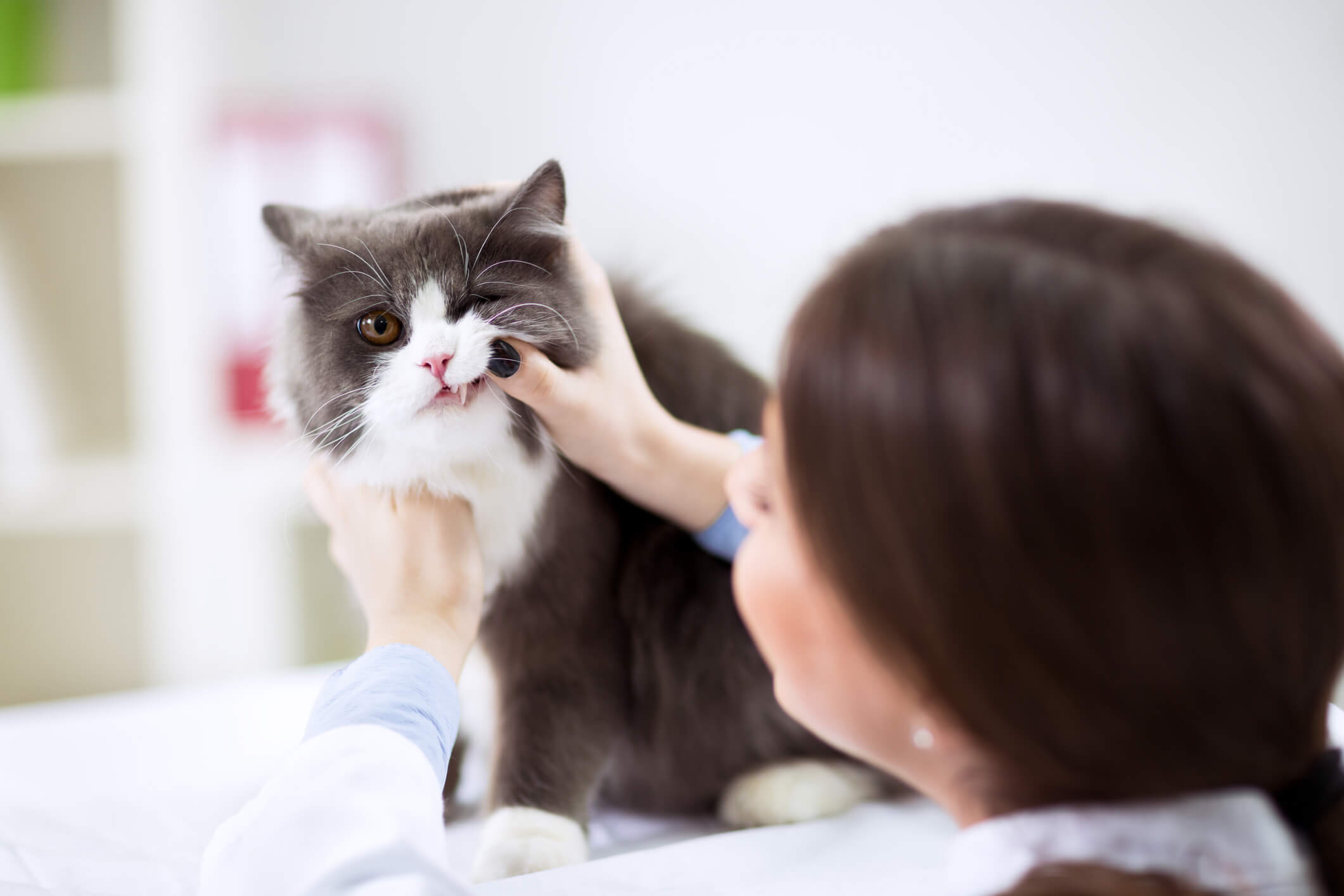
Recognizing and Treating Mouth Pain in Cats
Cats are masters of deception. They hide pain in order to not appear weak, no matter how bad it gets. Unfortunately, the fact that cats hide their pain so well makes it difficult to recognize when they need help. Pet parents can’t just ask their cats what’s wrong! All cats have to do is act natural, and their unsuspecting owners are none the wiser. This is particularly true when it comes to mouth pain in cats.
The truth is, your poor kitty would be a lot happier if you made their mouth pain go away. Health problems affecting the mouth commonly go undiagnosed because cat owners aren’t trained on how to detect signs of discomfort. Below, you’ll learn how to fit the clues together and help your cat feel comfortable again.
The telltale signs of mouth pain
Cats with mouth pain are commonly mislabeled as picky eaters. They’ll avoid dry kibble because it’s too hard to chew, instead preferring the soft texture of canned wet food. Your cat might also display changes in eating habits like swallowing food whole or dropping it on the floor. Some cats experiencing mouth pain chew on one side, while others avoid eating at all.
A cat owner might realize something’s wrong when their feline friend avoids the food bowl and starts to lose weight. When it comes to mouth pain, your kitty doesn’t have a loss of appetite—the act of eating simply triggers too much discomfort. Notify a vet if your cat experiences weight loss. The symptom is associated with many other health conditions besides mouth pain, and pet parents should always make sure they receive an accurate diagnosis.
Pay attention to visible signs around the mouth, too. Cats suffering from mouth pain might have drool stains in their fur, which are sometimes tinged with blood. Your kitty may also exhibit a nasty case of bad breath or develop a newfound lip smacking habit. Some cats show more overt signs of discomfort like pawing at the mouth or face.
Mouth pain is often associated with general changes in behavior, as well. A social cat may become more aloof and hide away in secluded corners. Alternatively, some cats with mouth pain get aggressive, especially if someone tries to pet their face. Any change in behavior warrants a trip to the vet to figure out why your kitty is upset.

Diseases that cause mouth pain
A variety of dental diseases left untreated can trigger mouth pain in cats. Conditions that lead to gum inflammation and sores include gingivitis, periodontal disease and stomatitis. Such diseases occur when cats don’t receive proper dental hygiene and plaque accumulates in the mouth. Cats are also prone to tooth resorption, a disease where lesions slowly break down affected teeth and cause them to absorb back into the gum line.
Not surprisingly, injuries are another leading cause of feline mouth pain. Cats who like to hunt outdoors sometimes get bitten as they carry off a mouse or squirrel. It’s possible the cat sustained a broken jaw if they often squabble with fellow household pets. In other cases, the source of their discomfort could simply be food or a foreign object wedged in the teeth or gums.
Treatment options for your cat’s pain
If you suspect your cat is experiencing mouth pain, the first thing to do is put the cat on a soft food diet. Skip the dry kibble altogether and puree their favorite wet food. This will provide nutrients and help them maintain a healthy weight until you can schedule a vet appointment.
Once the cat has received a professional diagnosis, your vet might prescribe pain medications that you can administer at home for the coming days or weeks. Depending on the cause, they might also require an antibiotic to help fight off bacterial infections.
Vets have a number of procedures they can conduct in the office to address mouth pain. They might do a thorough cleaning of the teeth and gum lines to prevent future plaque buildup and infection. In severe cases, the vet might recommend partial or complete removal of the teeth. But don’t worry—kitties can still enjoy food, play with their humans and do anything their little hearts desire without a single tooth!
Although they don’t want to admit it, cats depend on their loving owners to heal mouth pain. Learning the telltale signs of discomfort will help you take action the second you realize what’s going on. Once their mouth is fully healed, your kitty is sure to thank you for it!


